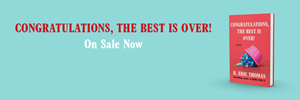Navigating the Maze of Modern Relationships
January 23, 2025, 10:10 pm
In the intricate web of human relationships, conflicts often arise. Whether it’s a vegan housemate critiquing food choices or a spouse struggling with hoarding, these issues reflect deeper currents. They reveal the challenges of cohabitation, communication, and compromise.
Take the case of the vegan housemate. She’s a critic, a culinary watchdog. Her friend, seeking harmony, feels the weight of judgment with every meal. This scenario is a classic clash of lifestyles. The friend thought they could coexist peacefully, but the reality is different. It’s a reminder that living together requires more than just shared space; it demands respect for each other’s choices.
The solution? A conversation. But not just any conversation. It’s about setting boundaries. The friend must express her need for autonomy in the kitchen. This isn’t just about food; it’s about personal space and identity. If the housemate can’t respect that, it may be time to reconsider the living arrangement. After all, a home should be a sanctuary, not a battleground.
Then there’s the issue of workplace disappointment. A promotion slips through the fingers of a deserving employee. It stings. But this setback can be a catalyst for growth. Seeking feedback is crucial. It’s like polishing a stone; the more you work at it, the more it shines. Constructive criticism can illuminate the path forward. It’s not just about the missed opportunity; it’s about understanding the landscape of one’s career.
In another corner of the relationship maze, we find a couple grappling with hoarding. One partner sees clutter as a problem; the other sees it as a comfort. This divergence can create a chasm. Counseling becomes a lifeline. It’s a space to explore feelings without judgment. The goal isn’t to change the other person but to understand and navigate the differences.
Support groups can also provide tools for tackling clutter. They offer strategies and camaraderie. A neutral third party can help clear the air—and the space. It’s about finding common ground, even when the ground feels shaky.
As relationships evolve, so do the rituals that bind them. A gourmet group, once a source of joy, can become a burden. The desire to exit gracefully is a common thread. Here, the art of farewell comes into play. A final dinner can serve as a celebration of shared memories. It’s a chance to acknowledge the past while stepping into the future. Transitioning doesn’t have to be abrupt; it can be a ceremony, a moment to honor what was.
These scenarios reflect a broader truth: relationships are dynamic. They require ongoing effort and adaptation. The conflicts we face often mirror our inner struggles. They challenge us to communicate, to set boundaries, and to seek understanding.
In the case of the estranged stepdaughter, the question of family dynamics looms large. The desire for connection clashes with past grievances. Here, the importance of intention shines through. If grandparenthood is a priority, it may be worth navigating the complexities of the relationship. It’s about weighing the potential for joy against the history of hurt.
Every relationship is a dance. Sometimes, partners step on each other’s toes. Missteps happen. But with patience and practice, harmony can be restored. It’s essential to approach conflicts with empathy. Understanding the other person’s perspective can illuminate the path to resolution.
In a world where individualism reigns, the need for connection remains strong. We crave understanding, acceptance, and love. Yet, these desires often collide with our differences. The vegan and the omnivore, the hoarder and the minimalist—they each represent a facet of the human experience.
Navigating these differences requires courage. It’s about having difficult conversations, setting boundaries, and sometimes, letting go. Relationships are not static; they ebb and flow. They require maintenance, much like a garden. We must tend to them, prune the dead leaves, and nurture the blooms.
In the end, the maze of modern relationships is complex. It’s filled with twists and turns, dead ends, and unexpected paths. But within this labyrinth lies the potential for growth and understanding. Each conflict is an opportunity to learn, to adapt, and to deepen our connections.
So, whether you’re facing a critical housemate, a disappointing workplace, or a cluttered home, remember this: every challenge is a chance to evolve. Embrace the journey. Seek clarity. And above all, nurture the relationships that matter. They are the threads that weave the fabric of our lives.
Take the case of the vegan housemate. She’s a critic, a culinary watchdog. Her friend, seeking harmony, feels the weight of judgment with every meal. This scenario is a classic clash of lifestyles. The friend thought they could coexist peacefully, but the reality is different. It’s a reminder that living together requires more than just shared space; it demands respect for each other’s choices.
The solution? A conversation. But not just any conversation. It’s about setting boundaries. The friend must express her need for autonomy in the kitchen. This isn’t just about food; it’s about personal space and identity. If the housemate can’t respect that, it may be time to reconsider the living arrangement. After all, a home should be a sanctuary, not a battleground.
Then there’s the issue of workplace disappointment. A promotion slips through the fingers of a deserving employee. It stings. But this setback can be a catalyst for growth. Seeking feedback is crucial. It’s like polishing a stone; the more you work at it, the more it shines. Constructive criticism can illuminate the path forward. It’s not just about the missed opportunity; it’s about understanding the landscape of one’s career.
In another corner of the relationship maze, we find a couple grappling with hoarding. One partner sees clutter as a problem; the other sees it as a comfort. This divergence can create a chasm. Counseling becomes a lifeline. It’s a space to explore feelings without judgment. The goal isn’t to change the other person but to understand and navigate the differences.
Support groups can also provide tools for tackling clutter. They offer strategies and camaraderie. A neutral third party can help clear the air—and the space. It’s about finding common ground, even when the ground feels shaky.
As relationships evolve, so do the rituals that bind them. A gourmet group, once a source of joy, can become a burden. The desire to exit gracefully is a common thread. Here, the art of farewell comes into play. A final dinner can serve as a celebration of shared memories. It’s a chance to acknowledge the past while stepping into the future. Transitioning doesn’t have to be abrupt; it can be a ceremony, a moment to honor what was.
These scenarios reflect a broader truth: relationships are dynamic. They require ongoing effort and adaptation. The conflicts we face often mirror our inner struggles. They challenge us to communicate, to set boundaries, and to seek understanding.
In the case of the estranged stepdaughter, the question of family dynamics looms large. The desire for connection clashes with past grievances. Here, the importance of intention shines through. If grandparenthood is a priority, it may be worth navigating the complexities of the relationship. It’s about weighing the potential for joy against the history of hurt.
Every relationship is a dance. Sometimes, partners step on each other’s toes. Missteps happen. But with patience and practice, harmony can be restored. It’s essential to approach conflicts with empathy. Understanding the other person’s perspective can illuminate the path to resolution.
In a world where individualism reigns, the need for connection remains strong. We crave understanding, acceptance, and love. Yet, these desires often collide with our differences. The vegan and the omnivore, the hoarder and the minimalist—they each represent a facet of the human experience.
Navigating these differences requires courage. It’s about having difficult conversations, setting boundaries, and sometimes, letting go. Relationships are not static; they ebb and flow. They require maintenance, much like a garden. We must tend to them, prune the dead leaves, and nurture the blooms.
In the end, the maze of modern relationships is complex. It’s filled with twists and turns, dead ends, and unexpected paths. But within this labyrinth lies the potential for growth and understanding. Each conflict is an opportunity to learn, to adapt, and to deepen our connections.
So, whether you’re facing a critical housemate, a disappointing workplace, or a cluttered home, remember this: every challenge is a chance to evolve. Embrace the journey. Seek clarity. And above all, nurture the relationships that matter. They are the threads that weave the fabric of our lives.


